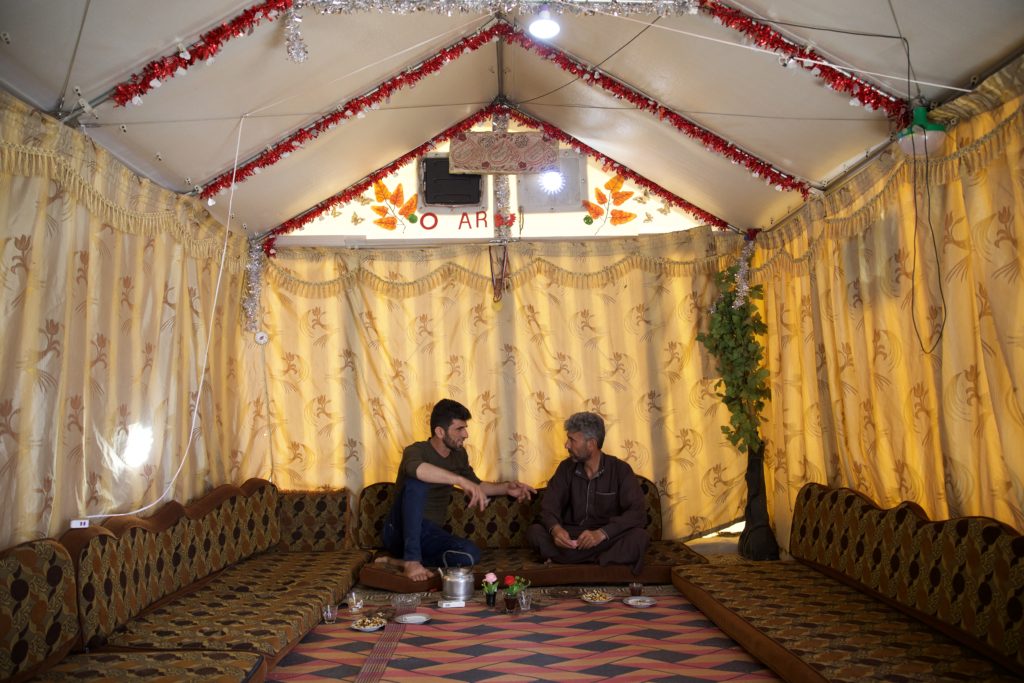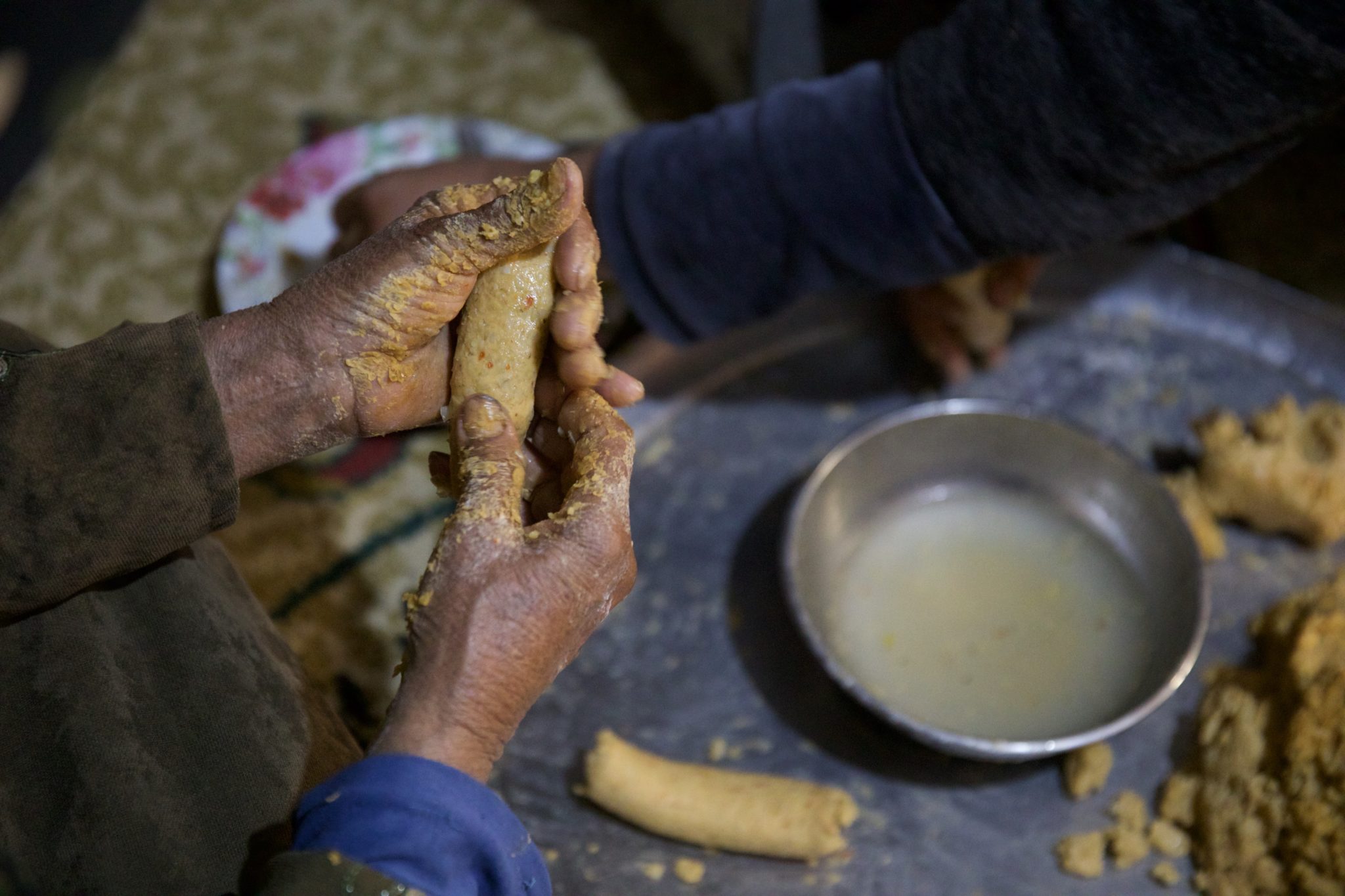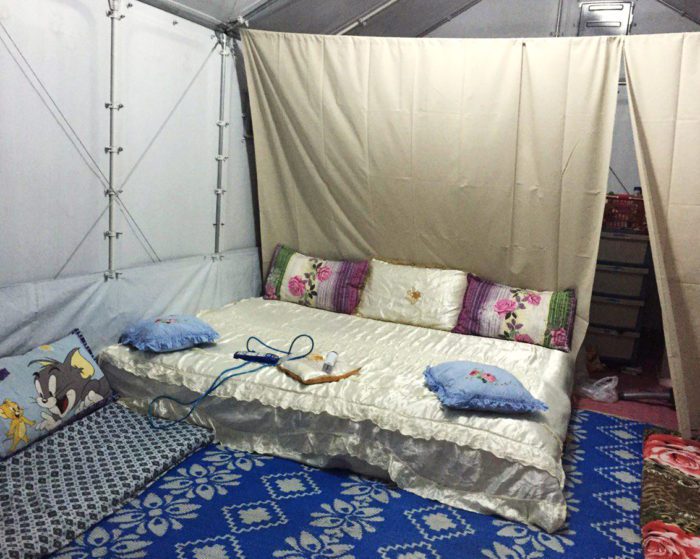Food is one of the most basic necessities of life. However, as high as 80% of the world’s displaced population is facing some form of food insecurity. Displaced people are the most vulnerable, as economic conditions worsen around the world, causing price surges and as climate drives food shortages.
For many of those displaced people, there was a time when food accompanied the most joyful celebrations. In those times, food was a source to be shared, that brought families and communities closer together. Whether cooking in the kitchen, or eating at the dining table, food is nearby in almost every shared experience.
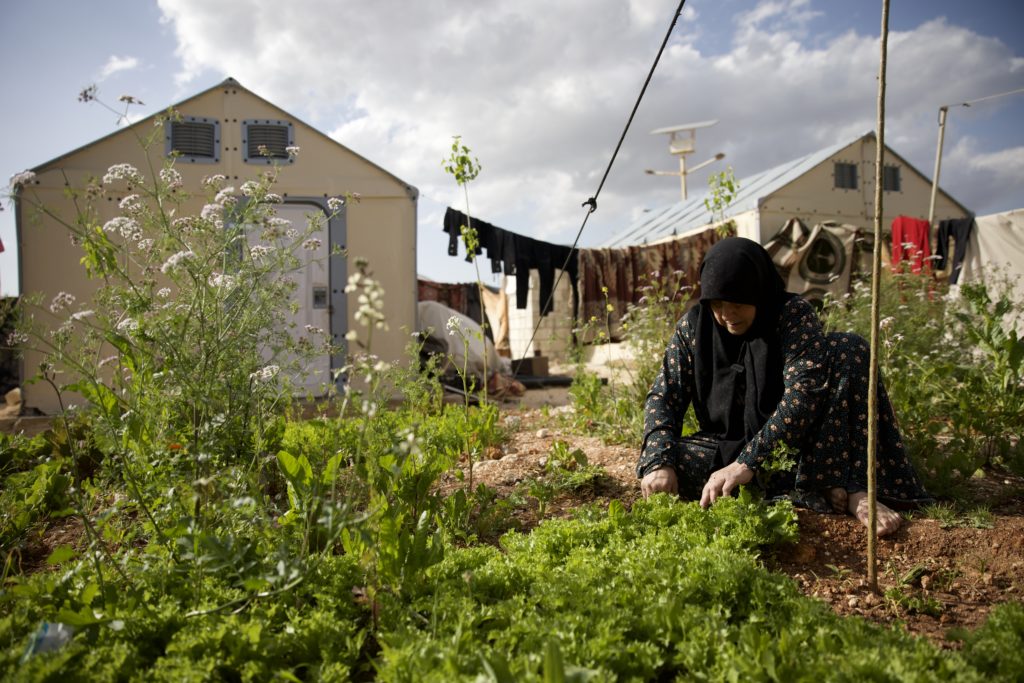
Imagine that you have been forced to flee to seek safety, or that your home was destroyed in a devastating natural disaster. Without your kitchen or dining table, how can you still share experiences with your loved ones? How can you still feel connected with the community around you?
In North West Syria, where nearly 3 million displaced people are currently living, rich food traditions were carried on as Eid al-Fitr celebrations quickly approached on the calendar. In Syria, food culture has been influenced by thousands of years of international exchange, so much that it shares many similarities to its Middle Eastern neighbours. Sharing meals with loved ones is not just a social activity, but an important part of Syrian food culture. In their RHU shelter, Fatimi Maard Basawi and Hanan Mahmoud Al-Ajaj prepared kibbeh darawish.
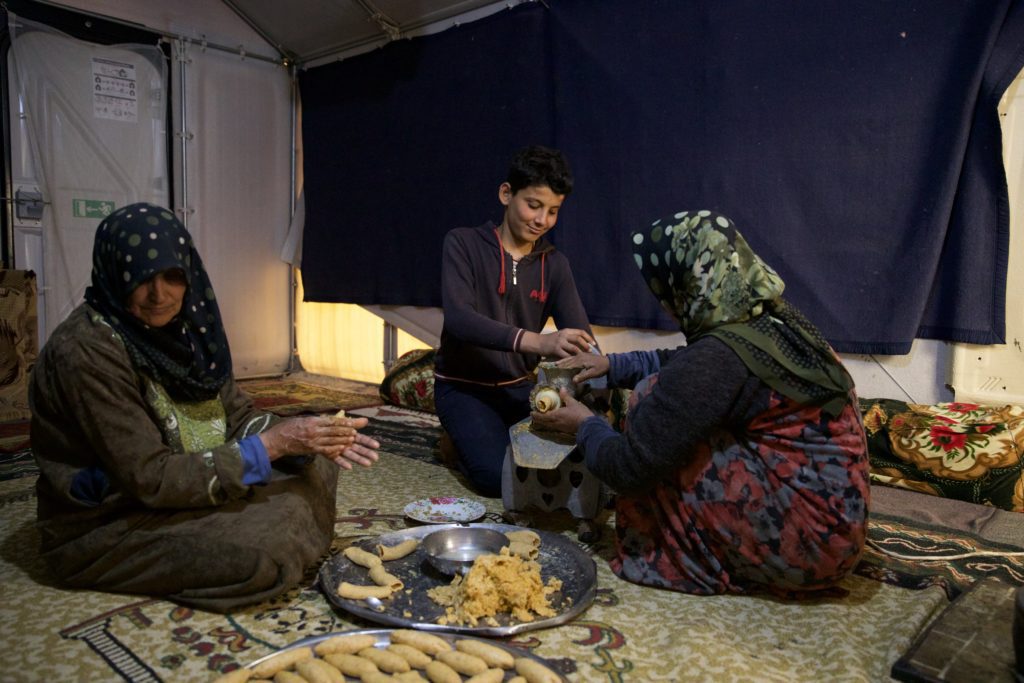
With a helping hand, Hanan operated a meat grinder, as Fatimi shaped the kibbeh with her hands. In Syria and the Middle East, there are dozens of types of kibbeh, a stuffed finger food that can include a variety of grains, meats and vegetables. It may also include any variety of herbs, often times picked fresh from the garden. Fatimi and Hanan’s Kibbeh Darawish is characterised by its specific shape.
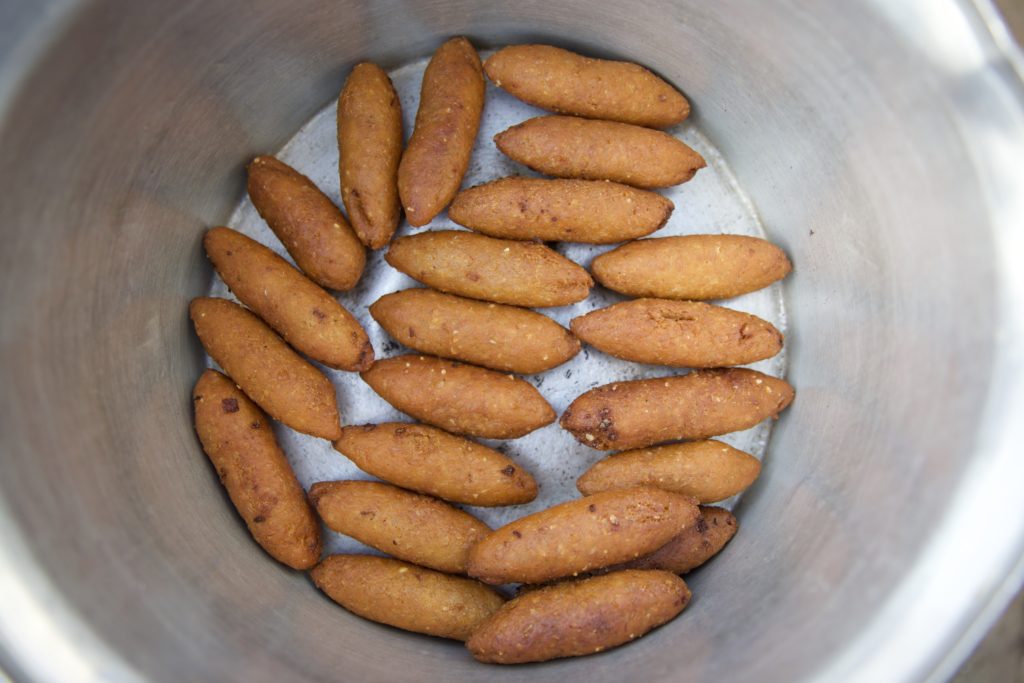
A shelter brings a family together, keeping them safe, providing privacy and helps to restore familiar routines and traditions they held before they were forced to flee – no matter how simple the tradition may be, like shaping kibbeh, or elaborate, like celebrating Eid.
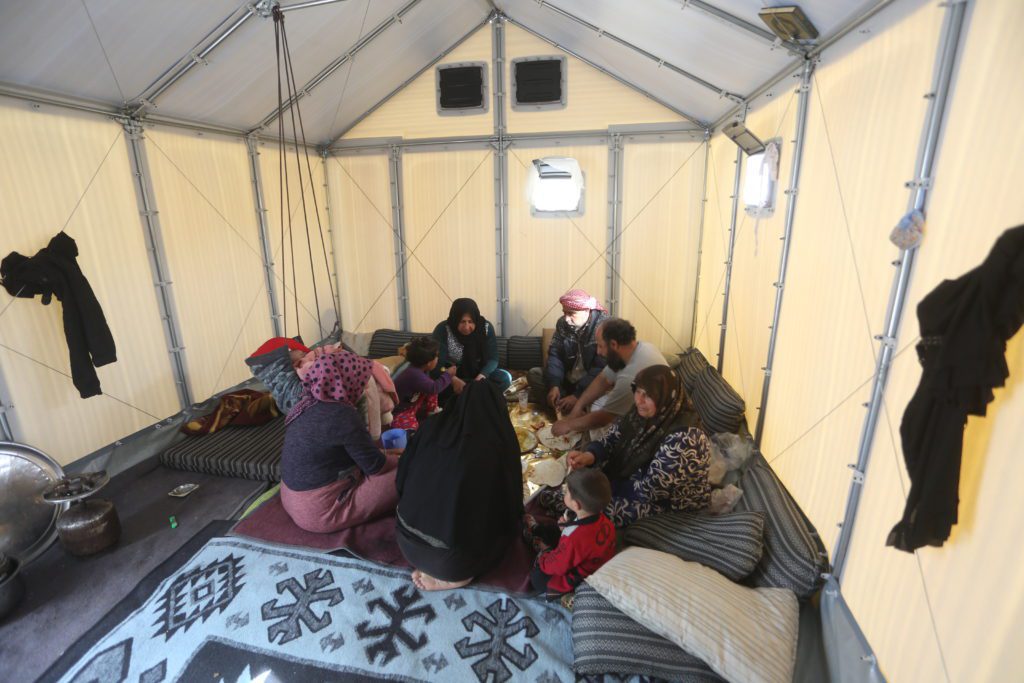
At the end of every meal, tea is served among family and friends. While there is no specific time at which this special and widely-shared drink is served, it is often brought at the end of every meal alongside desert, to help with digestion.
Many have memories of sharing tea on the sidewalk, with strangers and street vendors just outside their home, as they chat about their day. For those living away from their home, they may be able to share tea comfortably under the roof of their shelter, until the time when they can return. No matter where they may be, however, food has allowed them to keep their most treasured traditions alive.
